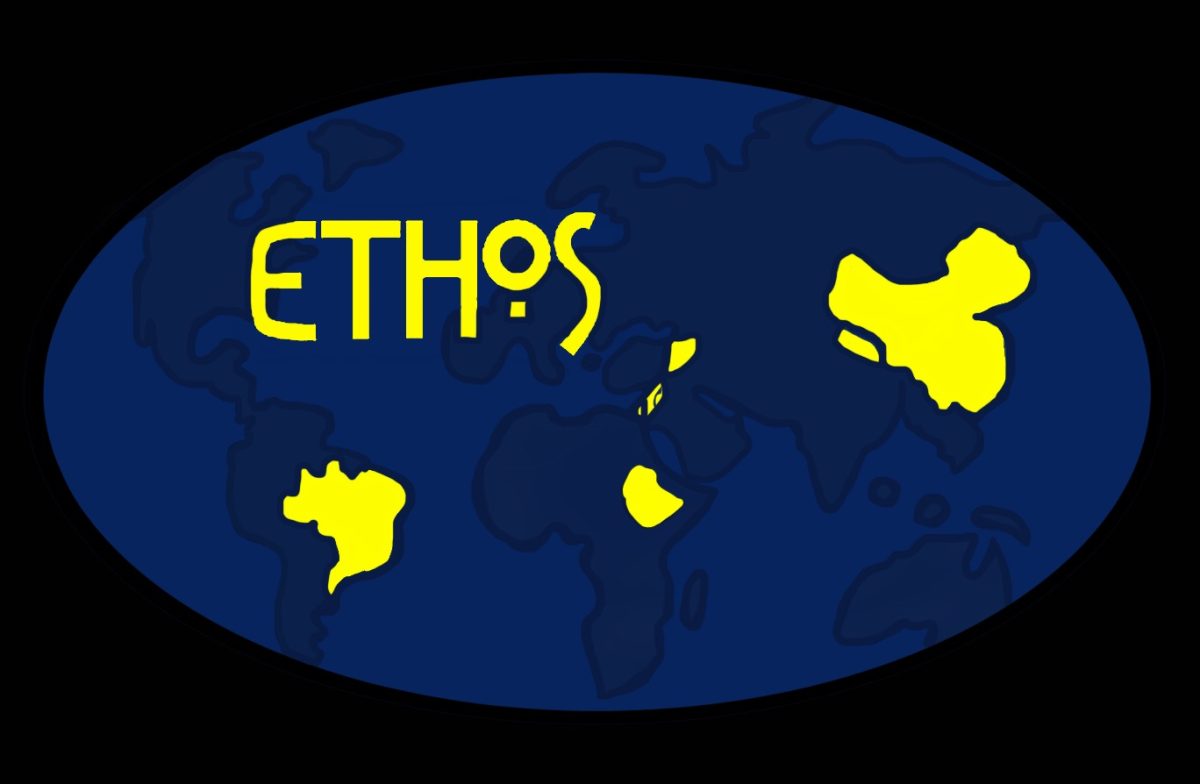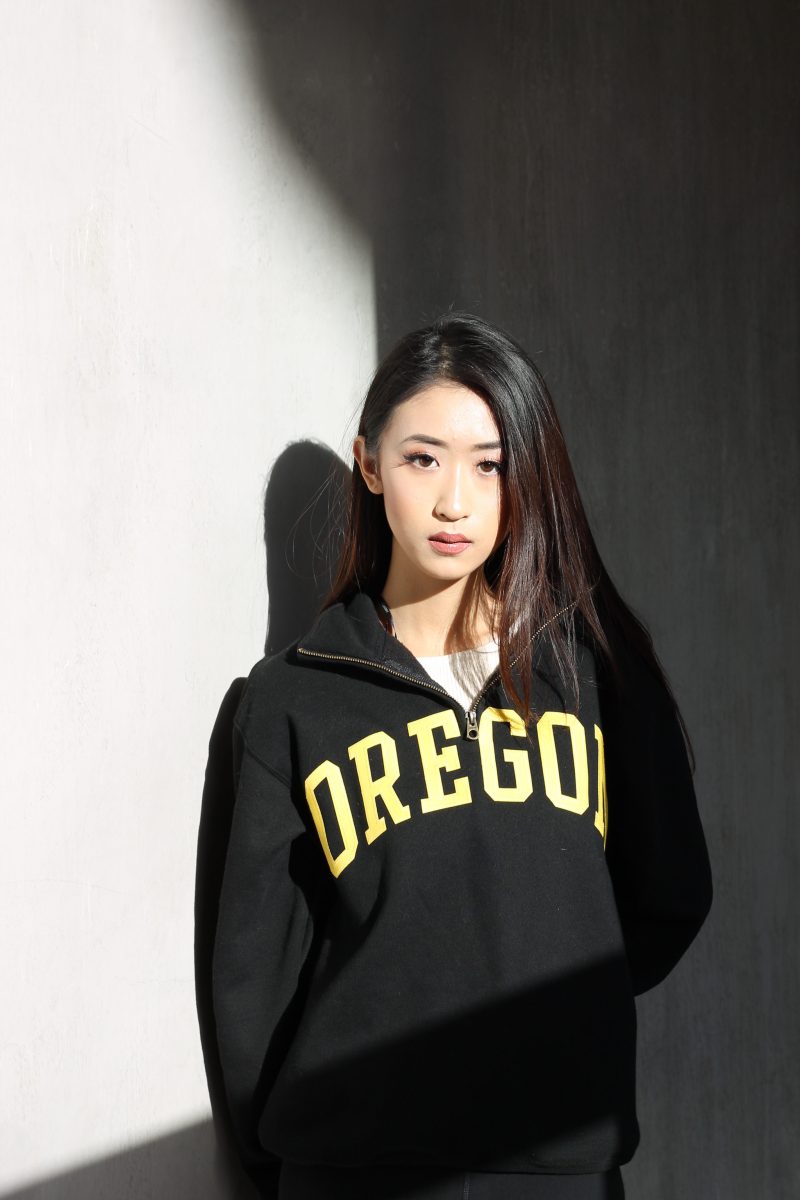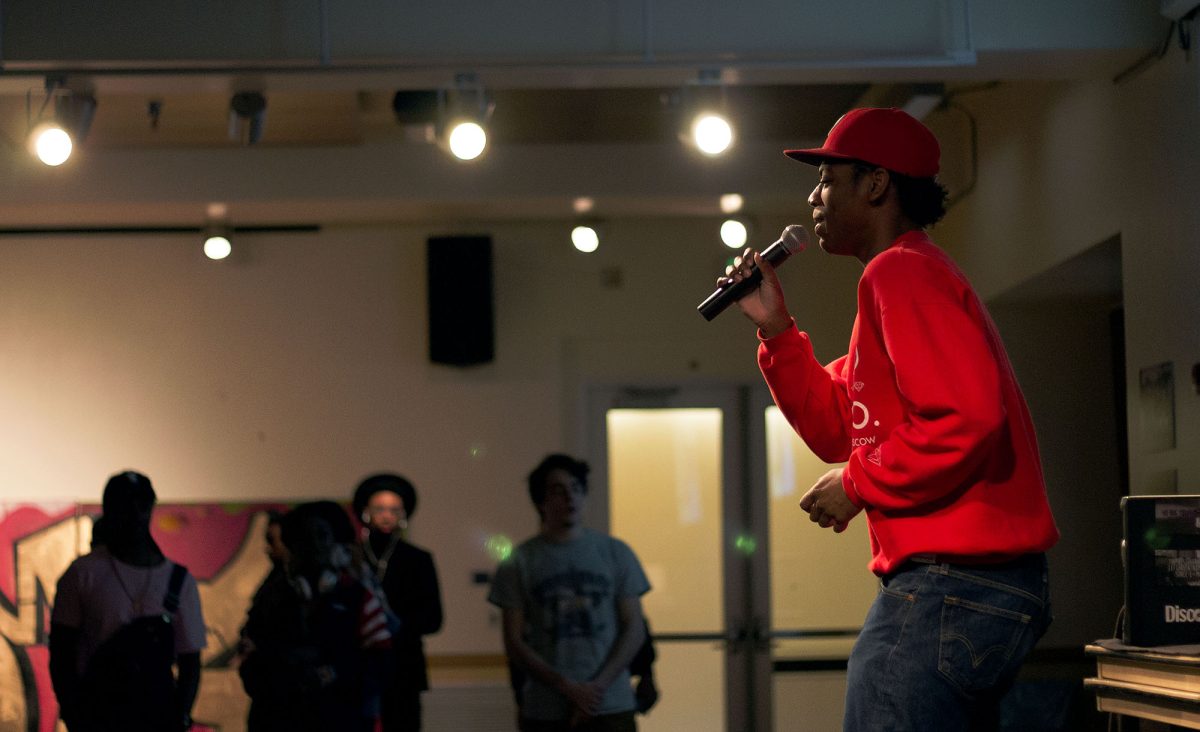Words by Morgan Krakow, Photos by Meghan Jacinto, Illustration by Erick Wonderly
[dropcap]A[/dropcap]s Endalk Chala walks down the street, he can’t shake the feeling that someone is following him. Every turn, every alleyway, someone could grab him. He could be arrested for what he’s written. But the 32-year-old graduate student has to remind himself: this isn’t Ethiopia. It’s Eugene, Oregon. He can write and publish what he wants on the internet without fear of retribution. This paranoia has taken Chala over four years to move past since moving here to the United States.
Chala is part of a community of storytellers and media consumers whose home countries have censored or banned certain forms of social media. While the United States has always been a hub for freedom of expression protected by the First Amendment to the constitution, today’s globalized media is helping this freedom cross borders and oceans. By using the freedoms available to anyone on United States soil, foreign nationals like Chala and others are able to not only find and develop their voices here, but also send information back home.
In the United States, social media can feel insignificant. Between the flow of snarky memes on Twitter, a great uncle’s political rants on Facebook, and high speed videos of nachos on Instagram, it’s hard to find anything meaningful in the feeds. But what could come off as unimportant to an average american media consumer has led to revolutions and regime change across the globe, and foreign governments do not take that lightly.
In 2007, Chala started using Twitter as a tool to demonstrate injustices in his own country. By 2012 he had found a community of Ethiopian storytellers who were trying to engage the public online. Chala and nine others decided to form a blogging group called Zone 9. They started by visiting journalists imprisoned by the government. They wanted to tell the stories of unfair treatment the journalists had experienced and the illegitimate grounds that led to their incarceration in the first place.
“[It was] a new beginning for Ethiopia, especially [for] young people,” said Chala. “Because until we started to use social media for serious stuff that has a political impact, like mobilization or reaching out, no one has taken social media seriously.”
After publishing these stories online and gaining readership, the government started recognizing the threat and shut the website down. The bloggers changed their URL, but it wasn’t long before the site was shut down again.
“We were playing hide and seek with the Ethiopian government,” said Chala.
And so they changed it again, and again. According to Chala, they changed the site as many as 14 times before switching over to a Facebook page. At the time, the government was unable to shut down or access individual Facebook pages. They later blocked all social media in July, 2016. While publishing these stories online was revolutionary, it wasn’t meant to be radical. Since Chala grew up under the current Ethiopian regime he made clear that this blogging was not meant to tear down the government, but rather to open up the community to a new level of free speech and knowledge.
“When you have information, when you have knowledge you know you realize you can achieve whatever you want to achieve,” said Chala.
From then on Chala decided to further his education here in Oregon, and one of his colleagues went to a meeting outside of Ethiopia. While they were out of the country, a remaining six members of their team were arrested and imprisoned. The group began smuggling letters out of the prison and Chala started writing online about the unfair treatment of his own colleagues. He helped the word of their struggle get out to news agencies, non-profits and governments across the globe. After international and diplomatic pressures, members of the group were finally released before President Obama’s visit to the country in July, 2015, and the remaining members were released in October of 2015.
The story of censorship doesn’t end in Ethiopia, and has different repercussions and levels around the globe. Cathy Dong is a second year student studying broadcast journalism. Growing up in Beijing, China she started using social media platforms like WeChat and Weibo – the Chinese versions of Facebook and Twitter. The two sites act as domestic stand-ins for the American versions which are blocked in China, along with Instagram and YouTube. Even in the United States. she continues to use her home country’s social media platforms. It helps her connect with friends back home, and according to Dong there is a community of students who use WeChat daily here as well.
For Dong, the culture of censorship is challenging. If she wants to see what’s happening at home, especially something controversial like the Hong Kong protests in 2015, nothing comes up on Weibo. Her relationship with censorship is complex because she values her Chinese heritage and culture, but also enjoys the broader opportunities for expression in the United States. According to her, there’s the idea in China that by watching American television and engaging with American social media the context is lost. People take it all in, and try to mirror it. If she wants to Snapchat or Instagram something, she has to purchase a circumvention service that goes around the government blocks and allows users to connect to servers overseas.
However, American culture is making its way to China through their domestic social media as well. In order to connect to Chinese fans, American celebrities have started engaging on WeChat. Since American social media is blocked, this is a way for a globalized popular culture to circumvent the Chinese firewalls. Dong loves talk shows and decided to try her hand at her own version of performance. She has started creating face makeup videos to post on YouTube. The only trouble is that when she visits home, she can’t show the videos to her friends. Dong says sometimes she’s even fearful of posting here, because of the strictness of the Chinese government.
“I feel like if I’m in China I will feel more like I am being watched, because I know wherever I am, whether I’m here or back in China there will be government monitoring whatever I’m doing with my phone,” Dong says.
She wants to create videos and blogs when she goes back home to China. She envisions eating and travelling with her friends. But Dong has to wait to post any of it until she’s back on the other side of the globe.
Chala knows this perspective, but in Ethiopia he says that the government banning social media in order to preserve culture is a “sugar-coated” framework for protection of the dictatorial regime. Ethiopia is the only African nation that has never been colonized. And according to Chala, the citizens of his home country are proud of their history. The government takes this pride and tries to say that American and Western media is an imperialist force and could lead to an unwanted shift in culture.
“They try to build and co-opt this proud history and try to prevent people from freedom, and social media is one which is easy to be blamed for this,” said Chala.
But to Chala, this is just a way to suppress the voice of the Ethiopian people by the regime. Even more extreme than China, Ethiopia is stifling ideas and information by banning all social media – domestic and other – under the guise that it is a protection of national heritage.
“That is being hypocritical because the government is receiving money from the United States government,” said Chala. “They also let this culture be practiced by their own children, by people who are running the government. They live the way the Americans live.”
And these views have not left Chala’s life unchanged. He takes pride in his culture, and takes even more pride in his people. He has taken an extreme risk by publishing truth and fact online. While his fears of retribution for his words here have long since diminished, the situation in Ethiopia is not the same. Someday, he will go back. But right now it’s clear it would be unsafe.
Cathy Dong is one of many students who face a barrier when communicating with family outside of the United States.















